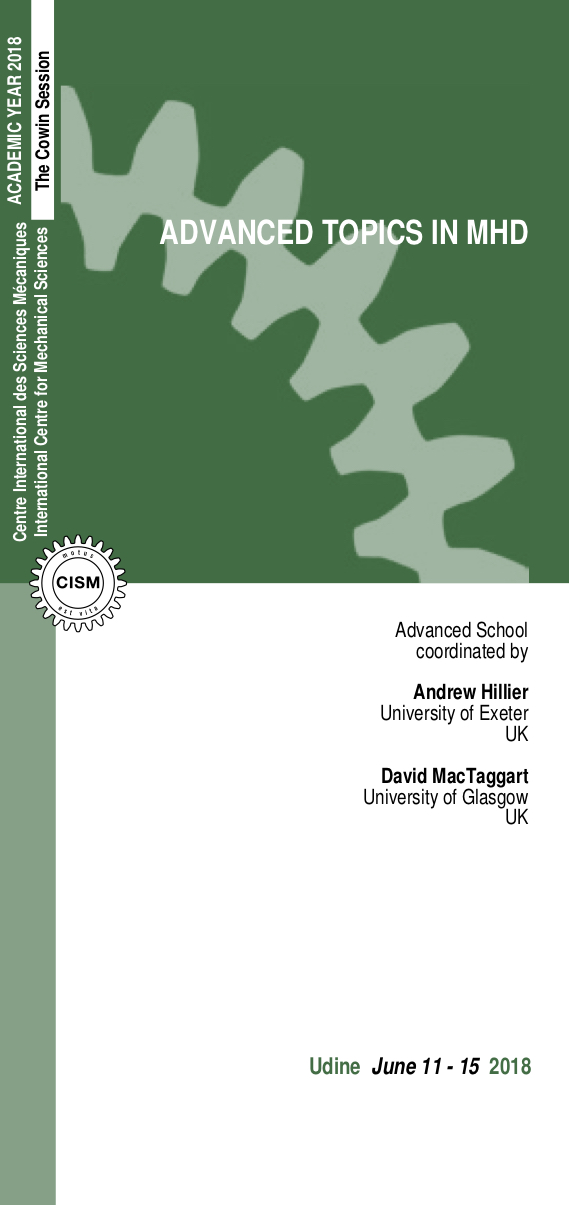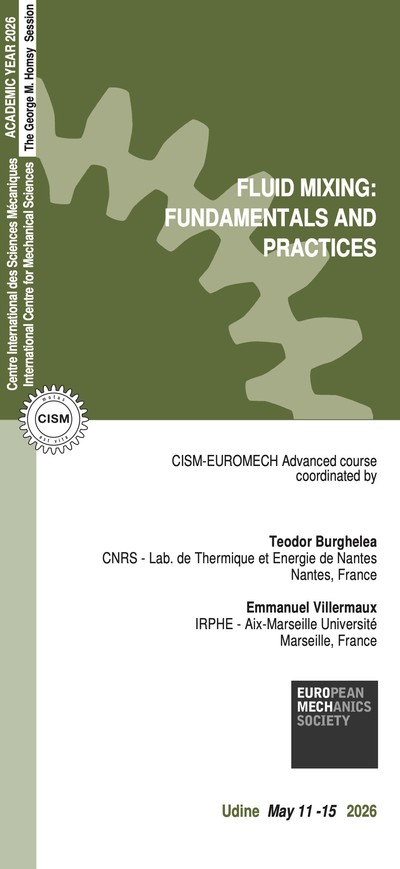Goedbloed, J.P., Poedts, S., Principles of Magnetohydrodynamics, CUP (2004).
Schindler, K., Physics of Space Plasma Activity, CUP (2007).
Taylor, J.B., Relaxation revisited, Phys. Plasmas, 7, p1623 (2000).
Valori, G. et al., Space Science Reviews, 201, Issue 1-4, pp. 147-200 (2016).
Ballester, J. et al., Partially Ionized Plasmas in Astrophysics, submitted to Space Science Reviews (2017).
Yoshizawa, A. et al., Turbulence theories and modelling of fluids and plasmas, Plasma Physics and Controlled Fusion, 43, pp. R1-R144 (2001).
6 lectures on: Ideal MHD instabilities using normal mode analysis and energy methods. In particular, the magnetic Rayleigh-Taylor and Kelvin-Helmholtz instabilities will be studied, discussing the effects and implications of the inclusion of a magnetic field.
6 lectures on: Multi-fluid extensions of MHD and their implications on waves and instabilities. The lectures will focus on the effect of ‘extra physics’ that goes beyond standard MHD and is required for the study of many astrophysical and industrial plasmas.
6 lectures on: Resistive MHD instabilities. We illustrate non-normal aspects of the resistive tearing instability and the development of mathematics necessary to describe non-normal systems in laboratory and astrophysical MHD. We shall calculate the transient growth due to non-normal effects and discuss the implications for the onset of the tearing instability.
6 lectures on: The topological and geometrical analysis of magnetic field models. The lectures will focus on how to calculate global magnetic helicity in simulations and use geometric techniques, such as quasi-separatrix layers, to better understand complicated magnetic fields models. Applications for the use of these analysis techniques in space weather and plasma laboratory experiments will be given.
6 lectures on: MHD relaxation theory. Lectures will develop the theory of the various forms of magnetic helicity, and in particular how they evolve in both ideal and non-ideal MHD. The use of magnetic helicity as a guide for MHD relaxation will then be discussed, giving both a theoretical treatment and examples of applications from both astrophysics and plasma physics experiments.
6 lectures on: Turbulent magnetic reconnection. After outlining the theories of inhomogeneous MHD turbulence, the lectures will discuss the turbulent development of reconnection, the role played by helicity in this process and implications for modelling reconnection in simulations.
* Italian VAT is 22%.





